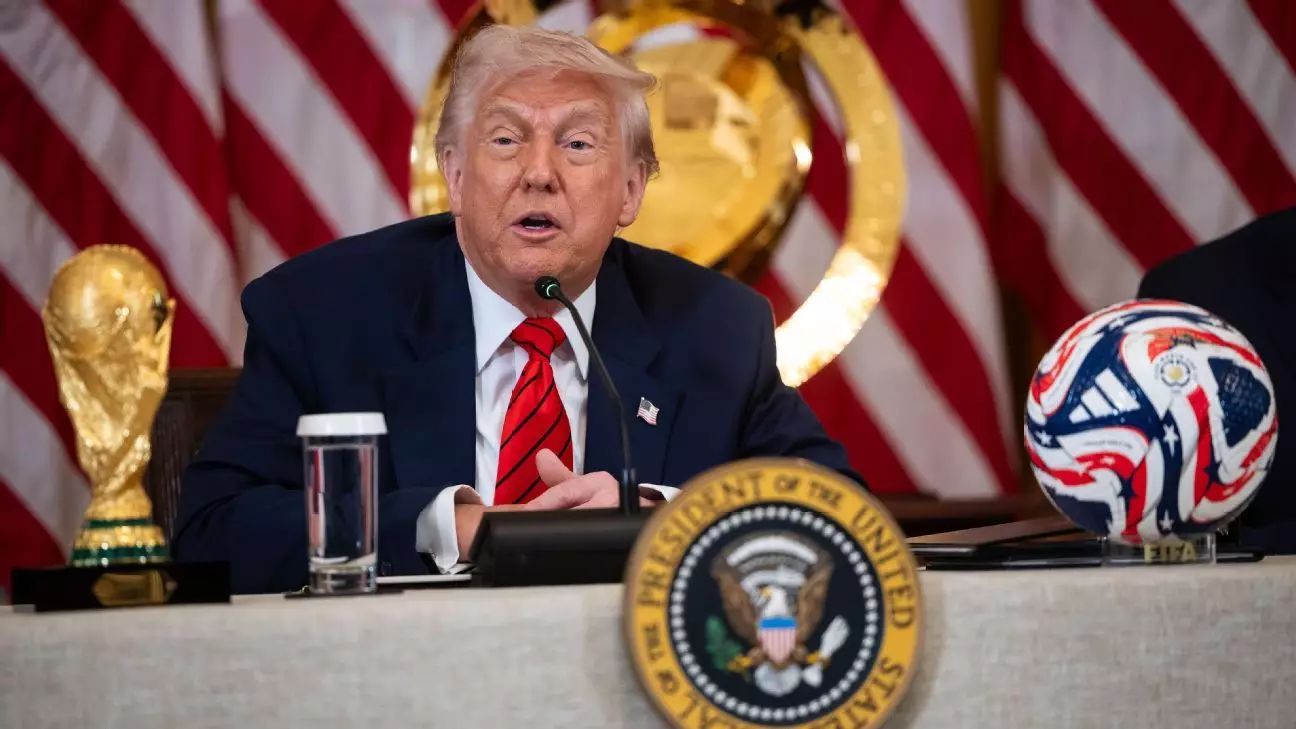The announcement that Andrew Giuliani will serve as the executive director of the presidential task force for the 2026 FIFA World Cup marks a critical step in the U.S. government’s commitment to hosting this global sporting event. President Donald Trump’s decision reflects not only a strategic move to amplify the tournament’s profile but also underscores Giuliani’s previous experiences under Trump’s administration. Appointing someone with a familial legacy in political and public service suggests an intention to leverage established connections and expertise for a seamless event.
Giuliani, who has previously held roles within the Trump administration, brings a competitive spirit and youthful vigor to the task force. His background as a golfer is a curious nod to the competitive nature often associated with sports leadership—a dimension that could signal a determined and spirited approach to the monumental task ahead. Trump’s endorsement, calling him a “highly competitive golfer,” seems to paint Giuliani not just as a leader but as a person driven by the desire to excel, which will be crucial when managing the complexities of such a massive event.
The Significance of Global Collaboration
The 2026 FIFA World Cup is a unique event, not only because it unites three host nations— the United States, Canada, and Mexico—but also because it represents an opportunity for these countries to showcase their capabilities on a global stage. With FIFA President Gianni Infantino and U.S. Vice President JD Vance also involved in the task force, the lineup seems strategically curated to ensure both international and domestic perspectives are represented.
Infantino’s optimistic comments about the potential economic impact are especially noteworthy. The projected contribution of $50 billion to the U.S. economy, alongside the creation of nearly 300,000 jobs, provides a compelling argument for why such events are essential beyond just sports. They are catalysts for local economies, tourism, and global diplomacy. This intricate interplay of sport, politics, and economics raises questions about how officials can best leverage such events for long-lasting benefits.
Challenges and Opportunities Ahead
While the optimism surrounding the tournament is palpable, the road to success is fraught with challenges. Ensuring a “seamless experience” for an influx of international visitors requires meticulous planning and execution. It’s refreshing to hear the task force publicly commit to this level of concern. Vance’s assurances that the team will do “everything in its power” to facilitate a successful event resonates strongly, yet it also highlights the immense pressure they face.
Moreover, the inclusion of a wide array of stakeholders, including FIFA advisers like Carlos Cordeiro, speaks to an understanding of the importance of collaboration. Their insights will be paramount in navigating the multifaceted intricacies of international sporting events. The hope is not only that logistics are handled efficiently but also that the spirit of camaraderie and cultural exchange is fostered among the diverse attendees.
As the countdown to the 2026 World Cup begins, the eyes of the world will undoubtedly be upon the United States, Canada, and Mexico. The stakes are high, and the potential for unprecedented collaboration and celebration of the sport is limitless. The challenge lies not just in delivering a grand event but in seizing this opportunity to enhance the cultural tapestry that football weaves across borders.

